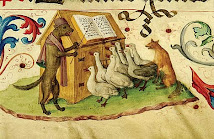
Q. What's a Lied?
A. The word Lied is German for song (pronounced /leet/). The plural is Lieder (pronounced /leeder/). Kunstlied is the proper term for "art song" in German, but music-lovers speaking English or French commonly refer to German art songs as just plain Lieder. Note that this site includes art songs in many languages (e.g., in French, the terms chanson and mélodie are used as well as lieder). There are also many madrigals, partsongs and choral works.
Q. OK, then what's an "art song"?
A. Like most categorizations in classical music (even the term "classical music" is problematic), this is a very difficult definition to make due not only to the blurring of lines that many contemporary compositions create, but also due to the overlap of popular music, pop classics, broadway musicals, and folk music. This definition is intended only as a rough guide to the genre.
An art song is a relatively short piece of music written by a person commonly referred to as a "composer", and set to a text intended to be poetic, for a classically-trained vocalist with some form of accompaniment (usually but not restricted to the pianoforte). During a performance, which is usually in a recital hall these days, even if the piece was originally intended for the salon, the audience sits quietly without smoking, eating or drinking (unless very stealthily). The singer is rarely also the composer of the song. The lighting rarely changes during a performance, and no special set, scenery, or costume (besides typical recitalwear) is required.
I could not say it better...
This is an excerpt from Emily Ezust's Lied and Art Song Texts Page. The Classical Iconoclast calls it "far and away the best source of Lieder and Song Texts", which I only can aggree.
 "My friend, Jørgen, doesn't believe I can collect one million giraffes by 2011. I'm gonna prove him wrong, but I need your help. You can create your giraffe(s) in any way you like, but not on a computer and no store bought objects. You must create your giraffe(s) yourself!
"My friend, Jørgen, doesn't believe I can collect one million giraffes by 2011. I'm gonna prove him wrong, but I need your help. You can create your giraffe(s) in any way you like, but not on a computer and no store bought objects. You must create your giraffe(s) yourself!









